Rating of the best milk producers for 2020
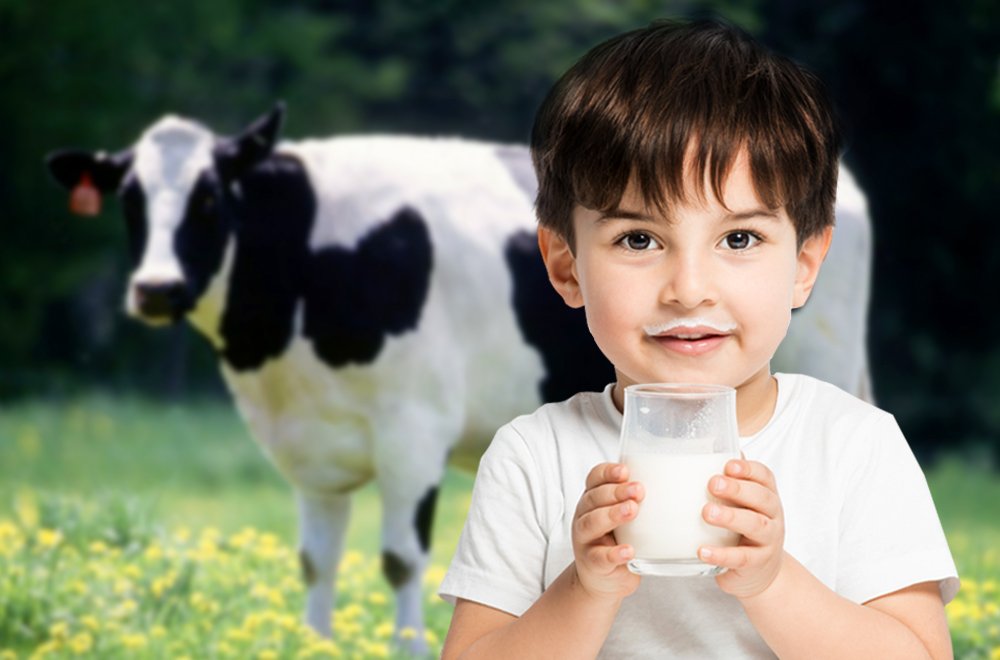
Recently, there has been a lot of controversy about the consumption and benefits of cow's milk. How to choose tasty and safe, what to look for when buying, in the article we will talk about the best milk producers.
Composition, properties and types
It is undeniable that cow's milk is a rich source of protein, amino acids and calcium, which are invaluable in the development of bones and muscles.
One of the controversial ingredients in it is casein - the main ingredient that creates milk proteins, and their human body cannot digest 100%. But his intolerance is individual, and milk is a favorite product of both adults and children.
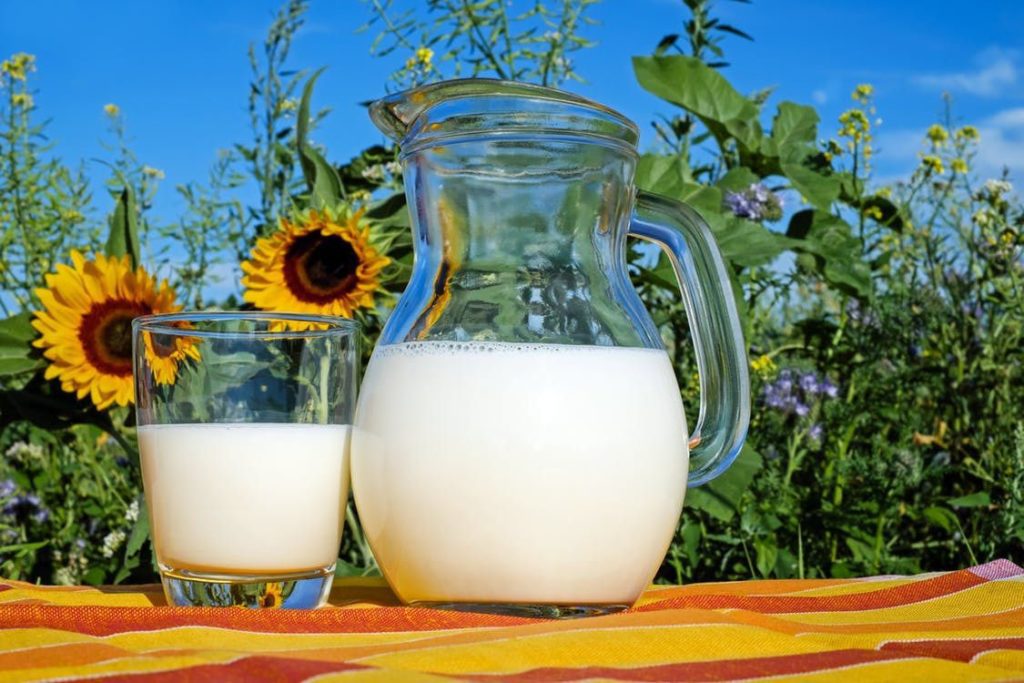
In many cultures, it is a staple of nutrition, especially for children. Recently, however, its properties and usefulness have caused much controversy. There are opinions that it should not be consumed by adults, including because of its high fat content.
On the other hand, it is a source of protein, which is important for bones.
It is known that foods high in calcium are most suitable for children who are growing up and for the elderly, especially women who are at risk of osteoporosis. But we can say with confidence that milk and dairy products in the human diet are a good and nutritious element.
Milk, according to the generally accepted term, is divided into:
- standardized;
- pasteurized;
- sterilized.
Can be homogenized or non-homogenized.
Depending on the fat content, a distinction is made between:
- standardized pasteurized milk with a fat content of at least 2%;
- standardized pasteurized with a fat content of at least 3.2%;
- fat-free pasteurized.
Pasteurization is the main stage in milk production. The process aims to maintain product quality while increasing the sterilization level to the highest possible levels.
Currently, dairies usually only use short-term (intensive or flash) pasteurization. Immediately after pasteurization, the milk is cooled to a temperature in the range from 0 to about 4 ° C. After that, the finished milk drink is poured into cans, bottles or other special packaging.
The packaging must be labeled accordingly. Disposable packaging (non-returnable) - polyethylene is a modern packaging unit for consumption. This type of packaging should be distributed for hygienic and practical reasons.Milk for consumption should be stored at points of sale - in containers that protect the product from contamination and temperature rise above 15 ° C, as well as in cans, bottles and disposable packaging, protected from direct sunlight and pollution.
The conditions for transporting milk are the same as for raw milk and other short-lived products.
It is important that manufacturers comply with all of the above conditions, since this product must be beneficial and certainly not harm the human body in any way.
Benefits
Contains natural proteins, fats, calcium and vitamin D, it is an important component of the diet of infants, pregnant women and the elderly.
A good variation is the presence of a cow lactose-free milk, thanks to which people with lactose allergy can consume it without any problems.
Available at any grocery store, 240 ml of whole milk provides the body with:
- calories - 149;
- proteins - 8 g;
- carbohydrates - 12 g;
- fats - 8 g;
- vitamin D - 24%;
- calcium - 28%;
- riboflavin - 26%;
- phosphorus - 22%;
- vitamin B12 - 18%;
- selenium - 13%;
- potassium - 10%.
The advantages mentioned above apply only to the pure product, to which no other substances have been added, including preservatives, stabilizers.
Recently, dairy products have appeared on the market in which natural milk fat has been replaced with vegetable fat. Therefore, when buying, it is important to pay attention to the information on the label.
disadvantages
- is high in calories, therefore not suitable for people with heart problems, high cholesterol levels and on a diet;
- cow's milk protein is a common allergen;
- cow's milk allergy occurs in 2-3% of children under three years of age and can cause a range of symptoms including rash, vomiting, diarrhea, and severe anaphylaxis;
- lactose intolerance, an estimated 75% of the world's population is intolerant to lactose, the sugar found in milk.
- dietary restrictions, people exclude animal products from their diets for ethical or health reasons.
- Potential Health Risks: Some people choose to avoid cow's milk due to concerns about possible contamination of these products with antibiotics, pesticides and hormones.
Whether it's allergies, a vegan diet, or health concerns, many people give up on traditional milk.
Tara matters
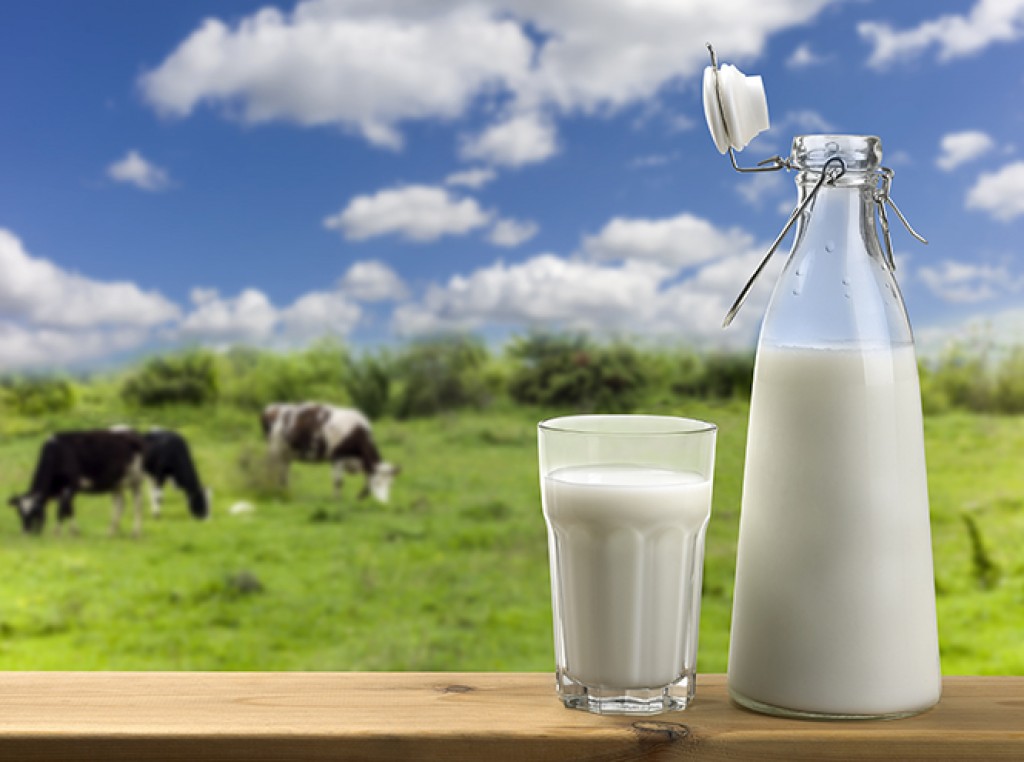
The answer to the question: what kind of milk to buy, in a box, bottle or plastic, depends on how quickly a person uses it after opening the package.
Consider the benefits of carton packaging
First of all, the three-layer structure of the box protects from oxygen, light and microorganisms, thereby preserving all the taste and nutritional values of the product.
Compared to glass bottles, cardboard boxes do not break, they are lighter and more hygienic than PET bottles.
Small packages are easier to transport and store (for example, in a small refrigerator), and a big plus is the ability to store some foods in cartons outside the refrigerator. This is the result of the technological process and the complete isolation of the product from the external environment (for example, UHT or pasteurized milk).
Studies show that the ability to easily open and close a product is also important for consumers.
The carton has lids that make it easier to pour liquid from it, for example, into a glass. An extremely important advantage of such packaging is environmental friendliness. And above all, they are cheaper than glass or PET bottles.
Pasteurization and sterilization
First, a little history ...
Pasteurization was started in the nineteenth century by the French chemist Ludwik Pasteur. He experimented with the effects of high temperature in terms of fixing the product. In other words, pasteurization is the thermal treatment of milk to prevent acidification and kill germs.
It is heated to 100 degrees for about 1 minute or heated to 70-85 degrees for 30 minutes.
Pasteurized milk is not as stable as UHT - it has a shelf life of only a few days.
It is interesting that not only dairy products are pasteurized, but also beer, wine, meat, sausages and other products.
Pasteurized milk should be stored in the refrigerator and drunk within a maximum of 2 days after opening.
Pasteurized milk is less stable and contains fewer vitamins. However, it retains its natural protein structure, therefore it is suitable for making cheese, yoghurt or curd milk at home.
UHT milk in carton packs is marked with the abbreviation "UHT". It also heats up, but to a much higher temperature - 120-135 degrees. Heating takes a few seconds, and then it is immediately cooled. This procedure kills all bacteria without exception, both harmful to humans and beneficial.
Why is it pasteurized?
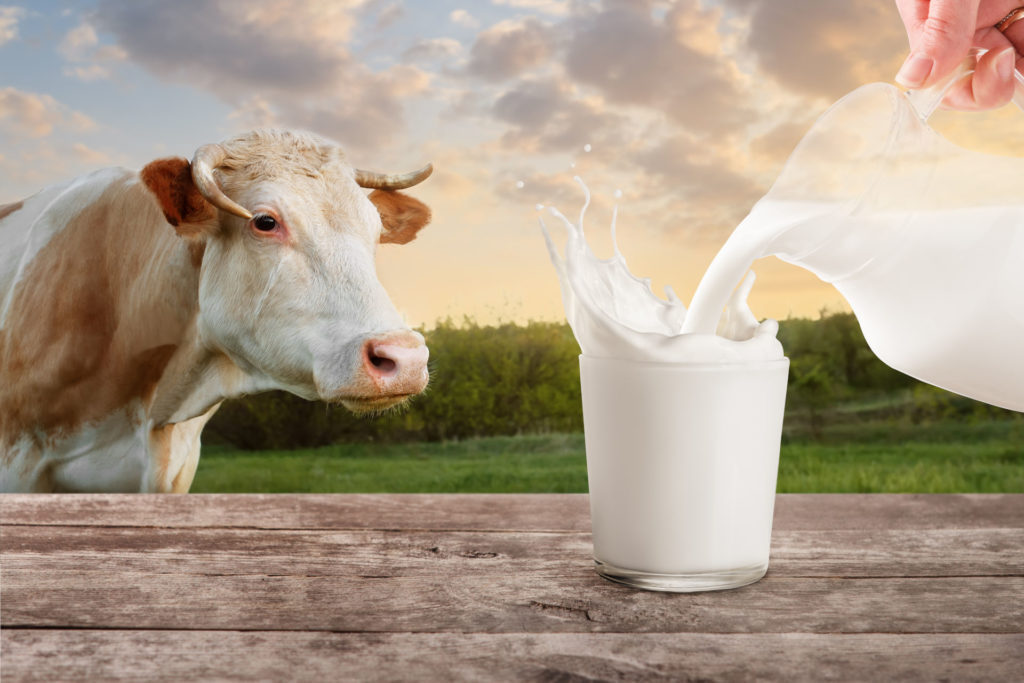
Raw milk of a cow, goat or sheep is rich in all types of microorganisms. Contains friendly, which are used in the production of cheese and harmless to health, such as lactic acid bacteria. Unfortunately, it can also contain harmful and pathogenic agents such as Salmonella or E. coli. It is because of the presence of harmful microorganisms and bacteria that milk is subjected to various types of heat treatment.
Heat treatment has another important effect. This significantly extends the shelf life by reducing the number of microorganisms and enzymes that affect its quality. The shelf life is of great importance for both producers and consumers.
Pros and cons of pasteurization
Pasteurization destroys the delicate taste and smell of milk, it is more versatile in taste. Pasteurization deprives milk of a small amount of calcium, for example, if you want to make cheese - calcium chloride is often added to pasteurized milk. Lipase is sometimes also added to add flavor to the milk.
The advantage of pasteurization is that it is much safer to store the product.
Who should stop drinking milk
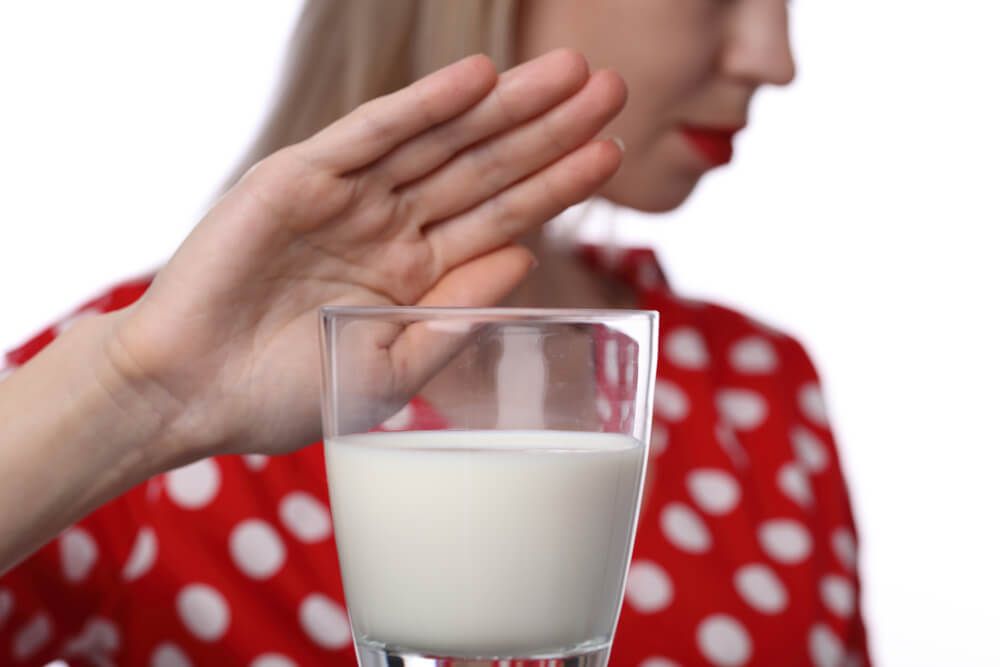
It is not intended for babies and young children due to its composition and high mineral content, which can overload the digestive system. It should not be given to children under 12 months of age, and later it is better to introduce it gradually.
Dairy products should be excluded from the diet of people who are allergic to milk proteins (this problem affects 5% of the child population and about 3% of the adult population). It is also undesirable for people with lactose intolerance (this is a primary or secondary impairment of the ability to produce an enzyme that hydrolyzes milk sugar into simple sugars).
When choosing dairy products on store shelves, first of all, you need to pay attention to the label, expiration date and manufacturer of the product.
The choice of dairy products is a pressing issue. Milk is often bought for the use of the product by young children, and its quality, freshness and storage conditions must be at a high level.
So, when choosing among milk producers, you should pay attention to:
- work experience the company's reputation;
- policy in the field of pricing;
- composition;
- results of independent examinations.
Of course, the opinions of buyers who have already appreciated the taste, color and smell of the selected product play a significant role in the choice.
Rating of the best milk producers
Pasteurized
Prostokvashino
This brand of product is produced by the manufacturer from the Republic of Belarus "Danone". According to the conclusions of a number of examinations and according to the results of research, there are no preservatives in the milk of this manufacturer, no fats and antibiotics.
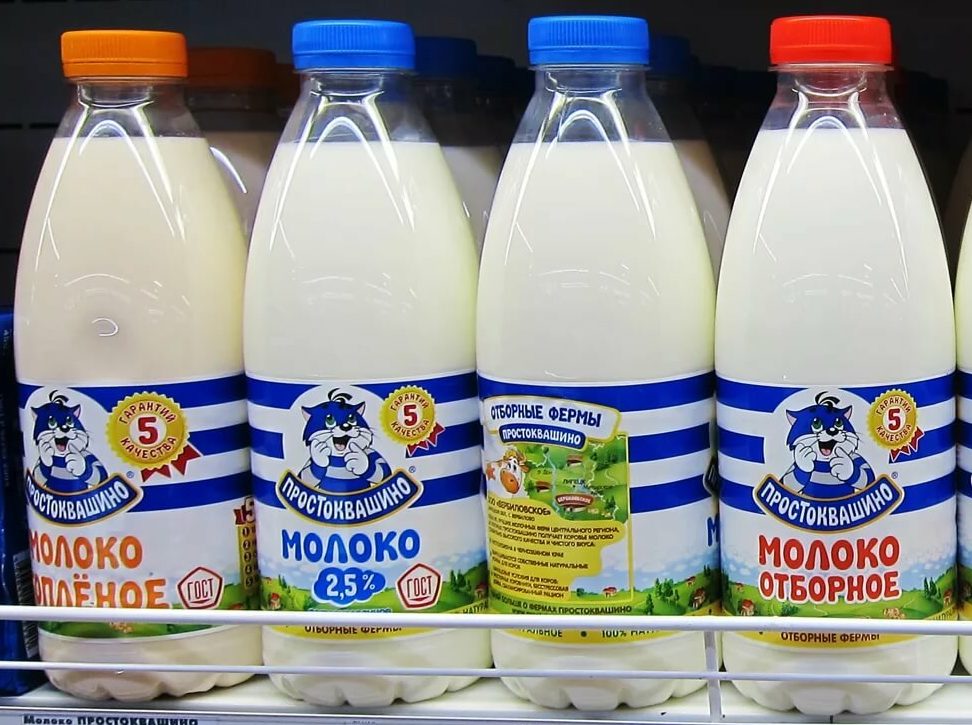
The product has a pleasant, natural taste inherent in natural milk with a uniform consistency.
Volume - 930 ml.
Price - 76 rubles.
The container is a plastic bottle.
- convenient packaging;
- high-quality plastic containers;
- convenient to take on the road;
- fat content 3.4%;
- organoleptic indicators are normal;
- complies with GOST standards;
- lack of GMOs, starch, preservatives;
- according to GOST standards;
- uniformity;
- taste and aroma;
- natural color;
- often a promotional price.
- not.
Viciebskae Malako "Tasty"
Pasteurized, normalized in a dense polyethylene package, it has excellent taste and short shelf life.
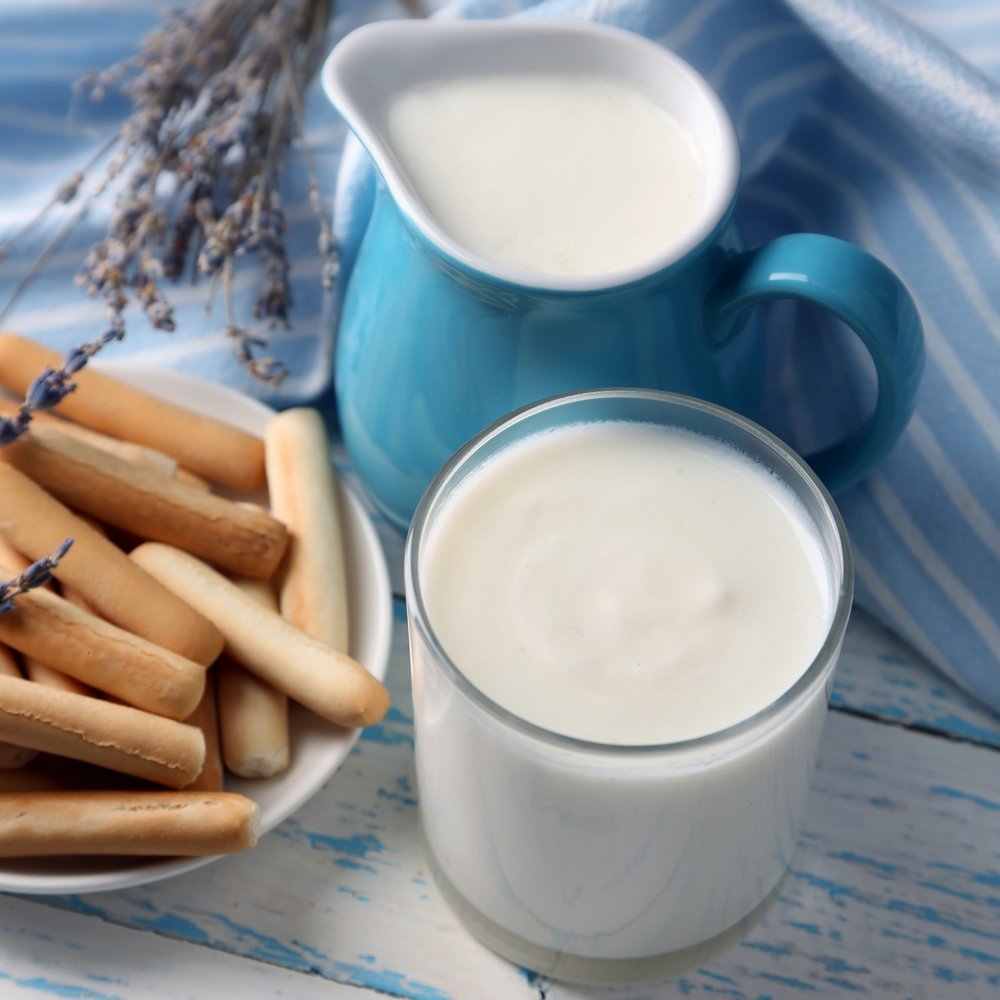
Volume - 1 l.
Price - 55 rubles.
Container - a plastic bag.
- great taste;
- natural color and aroma;
- affordable price;
- safe;
- fat content 3.2%;
- consistency;
- does not contain preservatives;
- natural souring process.
- inconvenient packaging.
Asenyevskaya farm
Pasteurized milk, with a fat content of 2.5%, has a natural taste, aroma and texture.
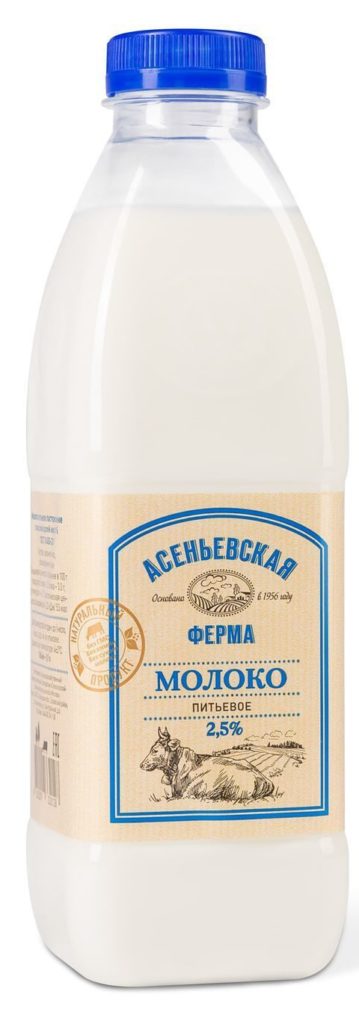
Volume - 900 ml.
Price - 96 rubles.
The container is a bottle made of dense plastic.
- convenient container shape;
- does not contain vegetable fats, preservatives and antibiotics;
- organoleptic indicators are normal;
- complies with GOST standards.
- a little empty taste.
Vologda summer
Pasteurized product that meets safety requirements. It has a natural taste, the color is white with a light cream shade.
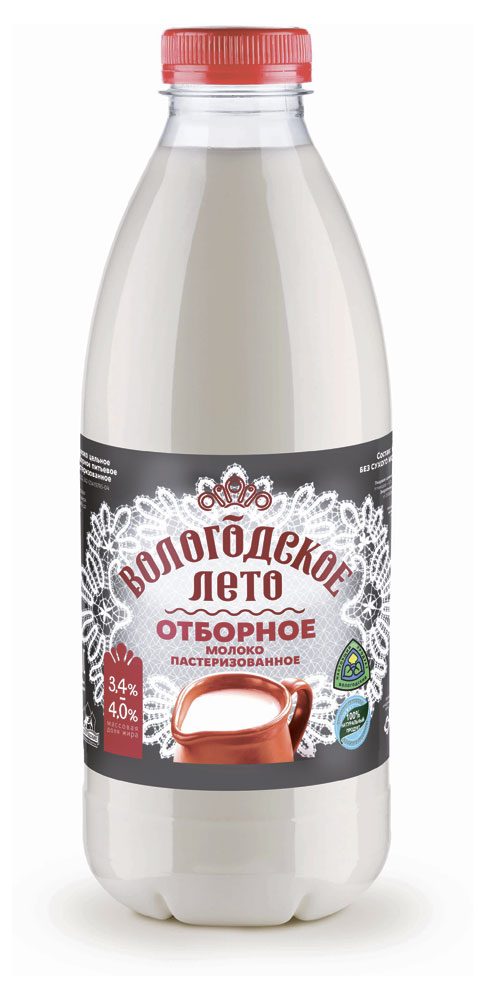
Volume - 930 ml.
Price - 82 rubles.
Container - PET bottle.
- affordable price;
- low concentration of lactulose;
- lack of vegetable fats;
- fat content 2.5%;
- compliance with safety requirements.
- the amount in the composition of calcium and phosphorus is not typical for natural dairy products.
Milk of our milking
Milk of this brand meets safety requirements, has a white color with a slightly creamy tint.
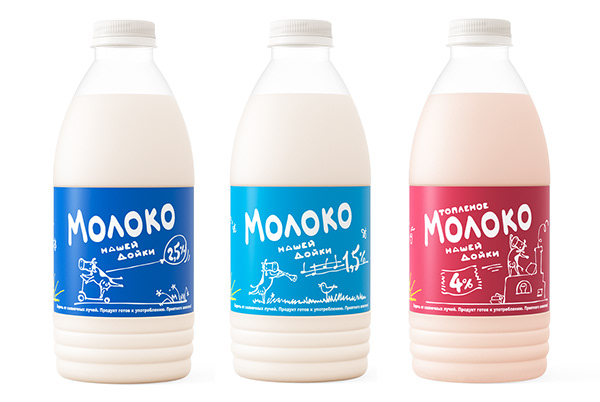
Volume - 930 ml.
Price - 86 rubles.
Container - PET bottle.
- convenient packaging;
- has good organoleptic properties;
- contains no vegetable fats;
- safe and useful;
- good consistency:
- natural taste and smell.
- low content of SNF;
- the amount in the composition of calcium and phosphorus is not typical for natural dairy products.
House in the village
Conforms to safety requirements and GOST requirements, the processing method is pasteurization, ideally in terms of physicochemical indicators.
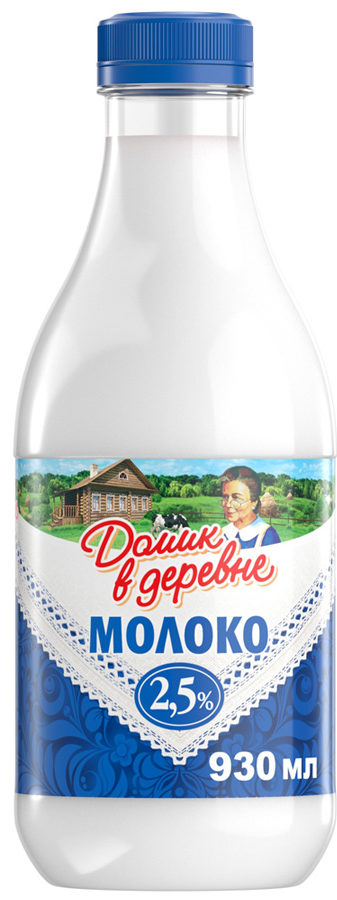
Volume - 930 liters.
Price - 87 rubles.
Container - PET bottle.
- quality;
- balanced taste, aroma and texture;
- lack of foreign tastes;
- like children;
- lack of vegetable fats;
- high calcium content.
- not.
Vkusnoteevo
Produced by PJSC Dairy Plant "Voronezh" and fully complies with safety requirements in terms of proven physical, chemical and microbiological indicators. It contains no antibiotics, preservatives and vegetable fats. The labeling on the package is fully consistent with the content.
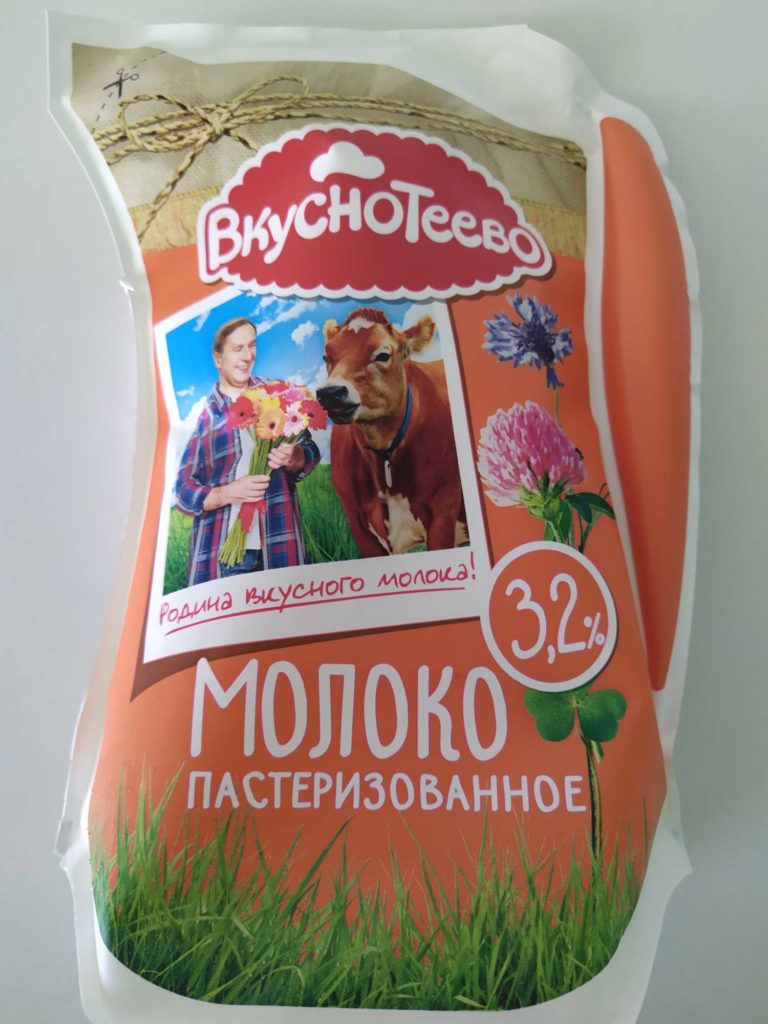
Volume - 1.4 liters.
Price - 99 rubles.
Container - dense polyethylene.
- interesting packaging design;
- taste and aroma;
- safe;
- not long shelf life;
- good organoleptic characteristics;
- lack of foreign taste and smell.
- a little pricey.
Ultra-pasteurized
Green Line / Market Crossroads
This line meets the safety requirements for proven performance, does not contain preservatives and antibiotics, the fat content is 3.2%, and has a short shelf life.
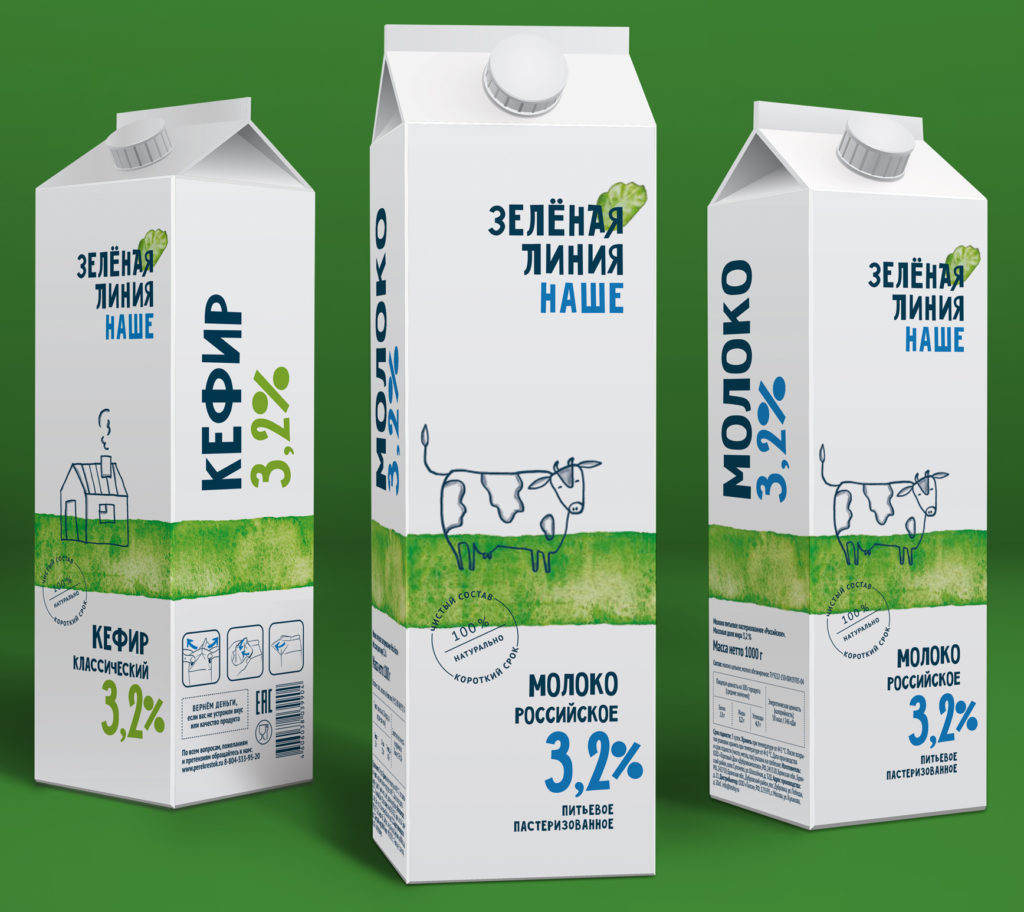
Volume - 1 liter.
Price - 92 rubles.
Container - cardboard packaging.
- taste close to natural;
- consistency, aroma and color;
- affordable price;
- convenient packaging;
- not long shelf life;
- contains no vegetable fats;
- lack of dry milk;
- excellent organoleptic properties;
- high calcium content.
- there is a slight fodder flavor.
Red price
Ultra-pasteurized milk drink, which is made according to all GOST standards, safe for consumption, no preservatives or antibiotics, as well as vegetable fats and milk powder were found in the composition.
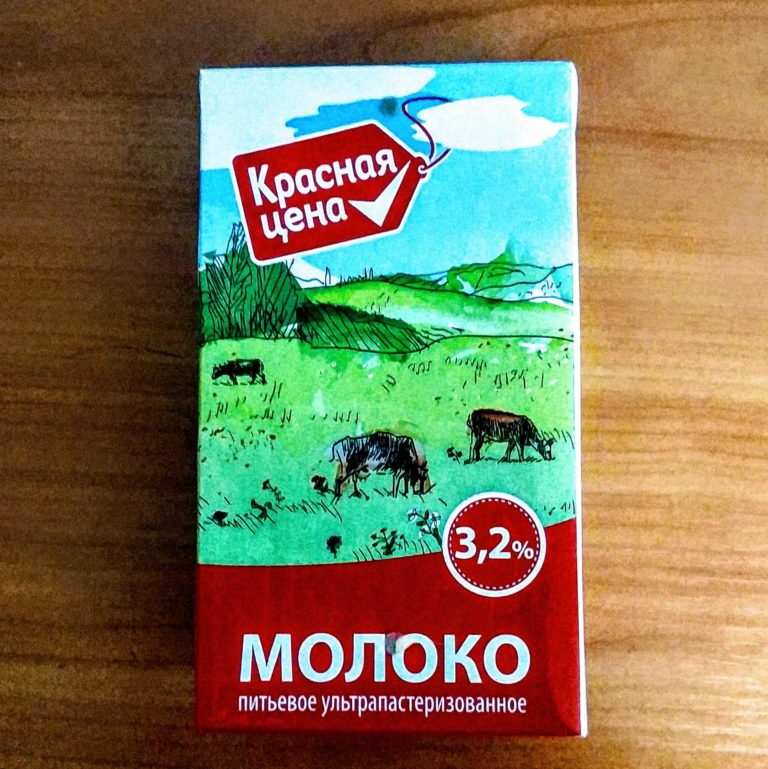
Volume - 970 ml.
Price - 92 rubles.
The container is a cardboard box.
- has good organoleptic properties;
- the proportion of fat - 3.2%
- good taste;
- natural color and aroma;
- normal consistency;
- adequate price.
- according to customer reviews, it acquires bitterness when sour;
- according to research, it is highly likely to be used in the composition of phosphates added as a stabilizer that are not listed in the composition on the package
Prostokvashino
High quality ultra-pasteurized product, manufactured by Danone JLLC, bright cardboard packaging with delicious contents inside. Conforms to safety requirements for microbiological and physicochemical indicators and GOST requirements, there are no preservatives and antibiotics in the composition.
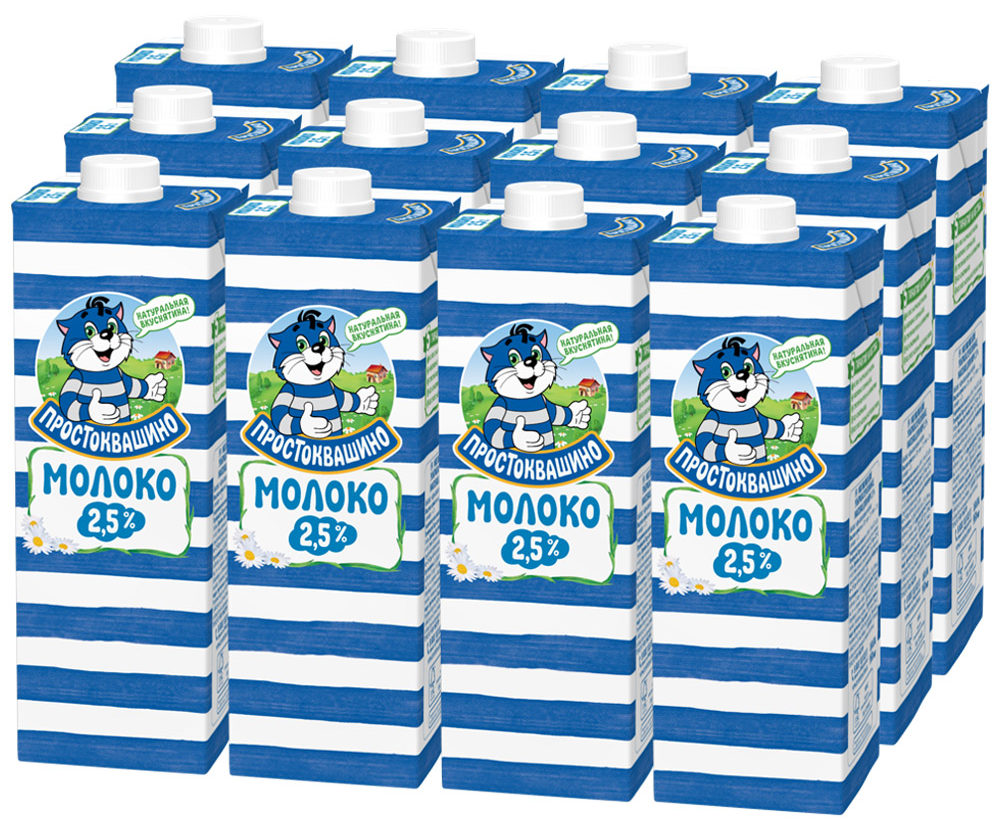
Volume - 950 ml.
Price - 89 rubles.
Container - cardboard packaging.
- bright packaging design;
- delicious;
- affordable price;
- quality product;
- the composition does not contain vegetable fats and powdered milk;
- natural aroma and color;
- long shelf life.
- not.
Conclusion

Perhaps, it is milk that has been familiar to us from early childhood, but, unfortunately, today it is not always possible to enjoy a delicious, aromatic drink. Unscrupulous manufacturers change the composition, add preservatives and other not useful components. But, nevertheless, you can buy a quality product, the recommendations and advice in the article will certainly help you make a choice in favor of a quality product and a responsible manufacturer.
new entries
Categories
Useful
Popular articles
-

Top rating of the best and inexpensive scooters up to 50 cubic meters in 2020
Views: 97661 -

Rating of the best materials for noise insulation for an apartment in 2020
Views: 95022 -

Rating of cheap analogues of expensive drugs for flu and colds for 2020
Views: 91751 -

The best men's running shoes in 2020
Views: 87681 -

Top ranking of the best smartwatches 2020 - price-quality
Views: 85091 -

Best Complex Vitamins in 2020
Views: 84801 -

The best dye for gray hair - 2020 top ranking
Views: 82406 -

Rating of the best wood paints for interior use in 2020
Views: 77202 -

Ranking of the best action cameras from China in 2020
Views: 75269 -

Rating of the best spinning reels in 2020
Views: 74827 -

The most effective calcium supplements for adults and children in 2020
Views: 72463 -

Top rating of the best means for male potency in 2020 with a description
Views: 68296









